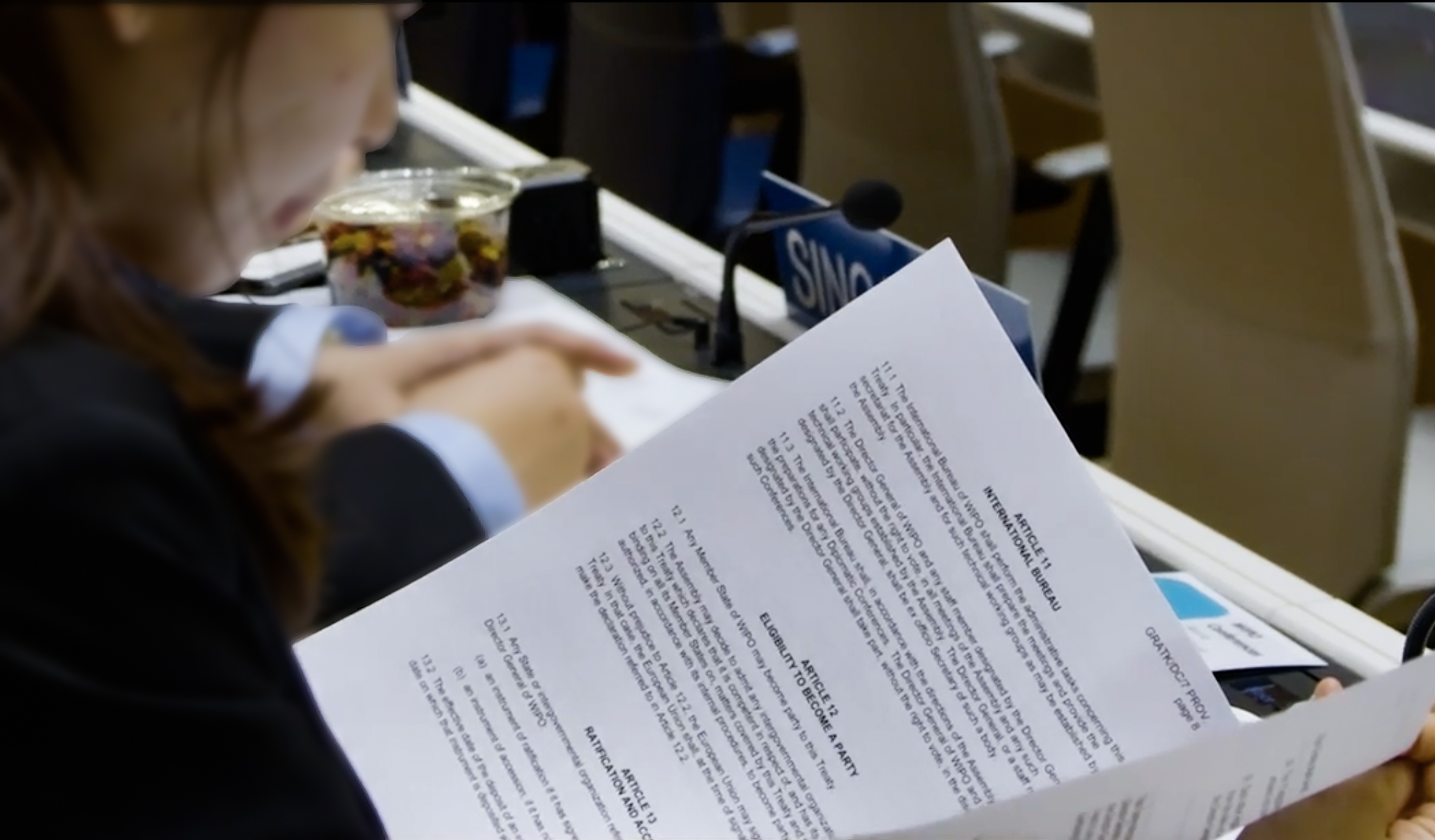By Bonface Orucho
A treaty passed by the UN’s World Intellectual Property Organization (WIPO) in May has the potential to protect Africa’s contributions to global genetic innovations and combat biopiracy.
According to a WIPO statement announcing the May 24 passing of a treaty that has been in the works for more than two decades, “this is the first WIPO treaty to address the interface between intellectual property, genetic resources and associated traditional knowledge.”
“The Treaty, once it enters into force with 15 contracting parties, will establish in international law a new disclosure requirement for patent applicants whose inventions are based on genetic resources and/or associated traditional knowledge,” the statement reads in part.
Once in force, the new law will mandate patent applicants to disclose the origin or source of genetic resources and traditional knowledge, recognizing the contributions of Indigenous peoples and local communities.
“While genetic resources themselves cannot be directly protected as intellectual property, inventions developed using them can, most often through a patent,” WIPO explains on the current state of IP laws.
Home to the world’s indigenous communities, Africa hosts diverse biological and genetic resources. There is a long list of inventions that have been developed from genetic resources obtained from Africa, including medicinal plants, agricultural crops and animal breeds.
The hoodia cactus, for instance, common in the southern Africa region, especially in the Kalahari Desert, was traditionally used for appetite suppression. It is believed the San Bushmen used hoodia to suppress appetite. Today, hoodia dietary supplements are promoted as appetite suppressants for weight loss.
Additionally, the rosy periwinkle from Madagascar is widely used to manufacture cancer-fighting medicines like vinblastine and vincristine, while Nigerian cowpea species have contributed to developing globally used exotic cowpea varieties. Many such inventions trace their origins to the continent.
The impact of African genetic resources on the development of genetic inventions is significant. A past article in the Journal of International Environmental Law & Policy highlights that over 50% of Western pharmaceutical drugs on the market as of 2004 were discovered through research into Africa’s traditional knowledge systems.
Despite the crucial role of traditional knowledge and natural genetic resources from Africa in innovations, past legal gaps fail to compel patent holders to recognize or compensate the contributing communities. As a result, corporations profit from these resources and knowledge without acknowledgment, a practice known as biopiracy.
Keymanthri Moodley, the director of the Centre for Medical Ethics & Law at Stellenbosch University in South Africa, explains how Africa’s genetic material is still being misused.
In a 2019 expert opinion article on The Conversation, she explains that “for decades, there has been a flow of data and biosamples from the African continent to the global north…in the absence of legitimate participant consent.”
A survey conducted in 2011 and 2012 led by the Centre for Medical Ethics & Law at Stellenbosch University and led by Moodley found that biopiracy persists in South Africa because of the complexity of the jargon used at the consent stage, among other reasons.
“Research ethics committees and researchers need to ensure that data transfer agreements or material transfer agreements are in place prior to the sharing of samples or data,” she explains.
The WIPO Treaty comes into force as Africa’s IP landscape evolves rapidly, with countries striving to enforce modern laws to align with global trends.
Mozambique has, for instance, recently updated its investment legislation and implemented Law No. 8/2023 of 9 June 2023 (known as the “Investment Law”), effective since September 2023, and Decree No. 8/2024 of 7 March (the “Investment Regulations”).
According to Law Business Research, a business law platform, the two laws guarantee “the protection of property rights and other rights of patrimonial content, including intellectual and industrial property rights, as well as the legal protection of the right to use and benefit from the land; and transfers of funds abroad.”
Several other countries, including Cabo Verde, South Africa, and Kenya, among others, have since 2021 repealed or made some major changes in their intellectual property laws.
While the new WIPO treaty does not yet capture issues such as compensations and sanctions, it sets a precedent for future legislation that could, in the long run, see more stringent policies implemented.
“Through this, we are showing that the IP system can continue to incentivize innovation while evolving in a more inclusive way, responding to the needs of all countries and their communities,” WIPO Director General Daren Tang stated about the agreement.
bird story agency
A treaty passed by the UN’s World Intellectual Property Organization (WIPO) in May aims to protect Africa's contributions to global genetic innovations and address biopiracy. This treaty is the first from WIPO to link intellectual property with genetic resources and traditional knowledge. Once ratified by 15 parties, it will require patent applicants to disclose the origin of these resources and knowledge, ensuring recognition for Indigenous and local communities.
Africa, with its rich biological diversity, has significantly influenced numerous inventions, such as the hoodia cactus for appetite suppression and the Madagascar rosy periwinkle for cancer treatment. Despite their importance, African resources have often been exploited without proper acknowledgment, a practice known as biopiracy. Studies reveal that a significant percentage of Western pharmaceutical drugs have roots in Africa's traditional knowledge systems. Misuse of African genetic material persists due to complex consent processes and inadequate legal protections.
The new treaty, although not addressing compensations and sanctions yet, sets a foundation for future stringent policies. As African IP laws evolve, several nations, including Mozambique, Cabo Verde, South Africa, and Kenya, have updated their IP legislation to better protect property and intellectual rights.
WIPO Director General Daren Tang emphasizes that this treaty shows how the IP system can evolve inclusively, catering to the needs of all countries and communities.






